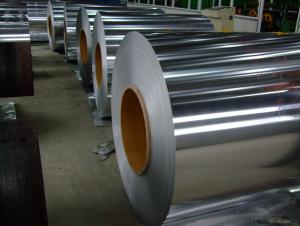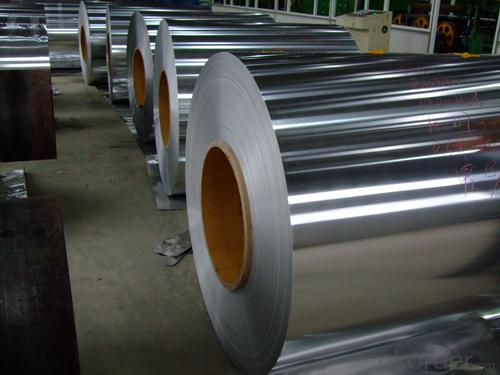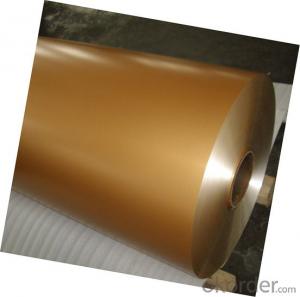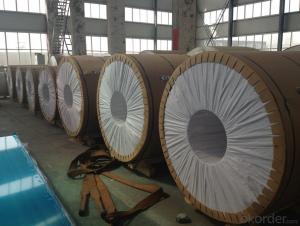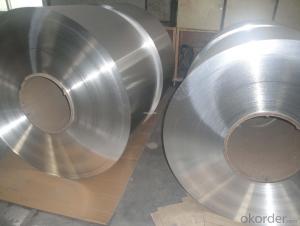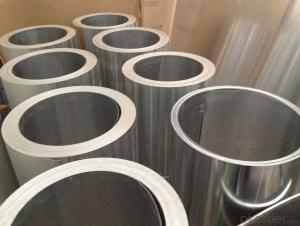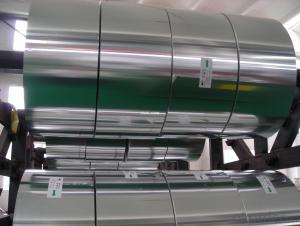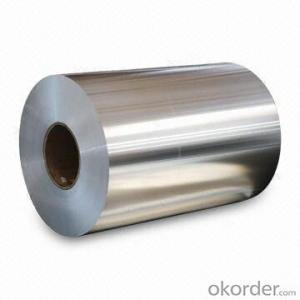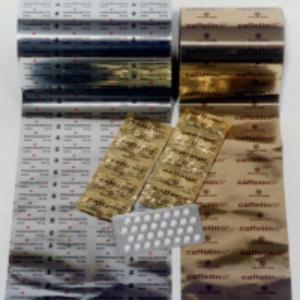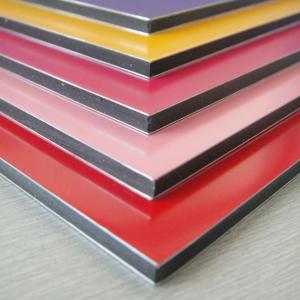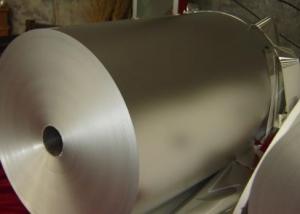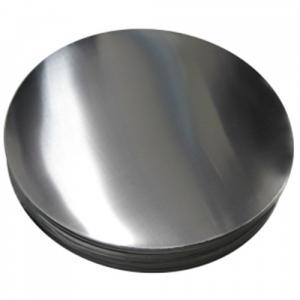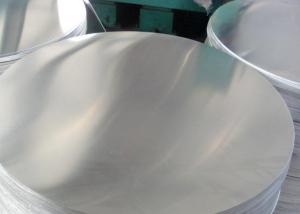Aluminum Coil for Gutter Manufacturing from China
- Loading Port:
- Shanghai
- Payment Terms:
- TT OR LC
- Min Order Qty:
- 5 m.t.
- Supply Capability:
- 100000 m.t./month
OKorder Service Pledge
OKorder Financial Service
You Might Also Like
Specification
Product Description
Commodity: Aluminum coil jumbo rolls
Alloy: 1050/1060/1100/1200/3003/3004/3005/3105/5005/5052/5754/5083/6061/8011
Temper: O, H12,H14,H16,H18,H22,H24,H32,H112,T6
Gauge: 0.2mm-8mm
CC and DC material with higher tensile strength and bigger elongation
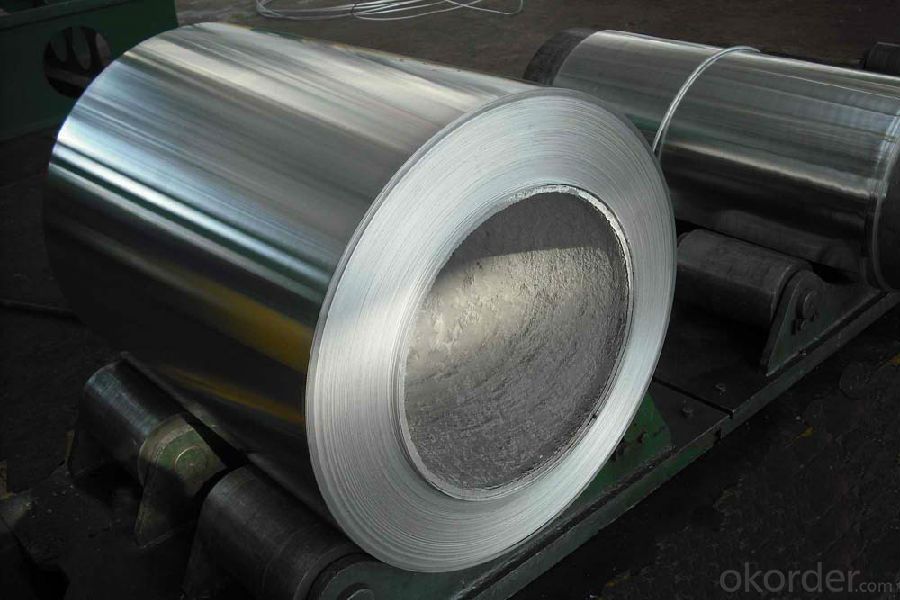
Aluminum Coil - Packaging
Standard Packaging
- Vertical axis packaging
- Core types: Fiber, Aluminum, Steel, Plastic
- Inner Diameter (ID) as required
- Outside Diameter (OD) as required
- Inserts as required
- Separators as required - cardboard or wooden slates
- Wooden Pallets or Crates
Custom Packaging
- Custom packaging, coil weights, inner diameters and outer diameters are available upon request.
Export Packaging
- Export packaging in conformance with IPPC International Standards is available upon request.
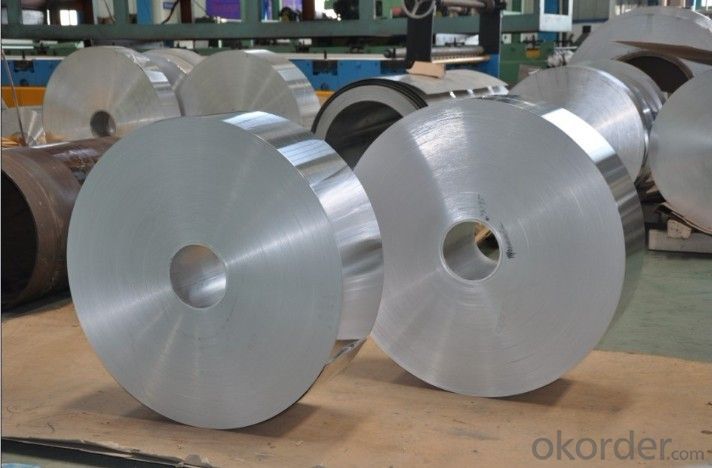
CNBM has passed ISO9001 and ISO14001 successfully, and also approved by American Food and Drug Administration (FDA). By the good product quality and professional service, we have set up a complete sales network. Until now, our products has exported to more than 20 countries and regions including Europe, USA, Canada, Brazil, Southeast Asia and middle east etc.
1.Specifications:
1. wood prepainted aluminum coil
for aluminium shutter
2. Aluminum Alloy: 3003H24, 3005H24, 3105H24 or 1 series, 5 series,
3. Thickness: any thickness range from 0.2mm to 1.5mm are available;
4. Width: any width range from 55mm to 1600mm are available;
5. Paint: PET, PVDF, Epoxy Resin;
6. Color: any color is available, as per your sample or our sample;
7. Coating hardness & adhesive: pensive hardness more than 2H; 1st grade adhesive;
8. Impact resistance: no cracking and peeling (50kg/cm, ASTMD-2794:1993)
9. Flexibility & MEK resistance: “T-bend”, 2T; MEK resistance more than 100;
Warranty: PET coating allows 5-10 years
10.Package: carton package and wooden pallet; 1Ton, 1.5Ton or 2 Tons as per your request;
11.Certificate: Certificate of origin;
Lidao Aluminum coil is mainly be used for roof, ceiling, curtain wall, al-plastic panel, aluminum veneers, perforated panel, aluminum tile, window, door, metal furniture, can or box for food,
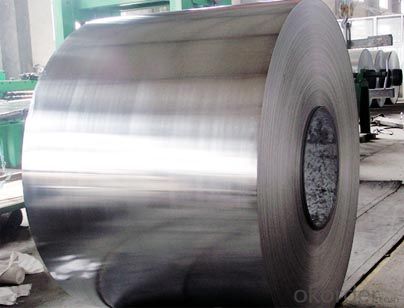
Our Services
CNBM is ready to assist with any product needs or enquiries. We value our customers and welcome your thoughts and feedback.
Please send comments, questions and requests through alibaba or our personal contact so they can be directed to the appropriate department.
About samples: Based on our company rules, a few samples are willing to be offered, but clients are requested to pay freight.
Working time:9:00~17:30(GM+8) from Monday to Friday, but you also can contact with us via personal contact information during our leisure time. We will try our best to offer you service in 24*7 hours.
Any quality, quantity problems are occured, response you will get in time not over more 24 hours after we recieve your complains. Problems will be solved in one week throught friendly negotiation.
FAQ
Q: Can you provide free samples?
A: Yes, free samples will be sent to you on freight at destination.
Q: Can I get your latest catalogue?
A: Yes, it will be sent to you in no time.
Q: What is the MOQ?
A: 5 tons
Q: What are your payment terms?
A: We accept L/C, D/A, D/P, T/T, West Union,etc.
If you are interested in our products, please do not hesitate to contact with us via following information
- Q: Is the accumulation of aluminum in the body harmful to health?
- <p>Aluminum buildup in the body has been a subject of concern, particularly in relation to Alzheimer's disease. While aluminum is naturally present in the environment and is used in various products, including food packaging and cookware, there is no strong scientific evidence to support the claim that aluminum exposure or accumulation causes health problems in humans. The World Health Organization and other health authorities have stated that aluminum intake from food and drinking water is not a significant health risk for the general population. However, it is always recommended to follow good hygiene practices and use cookware that is known to be safe for food preparation to minimize any potential risks.</p>
- Q: This question asks about the typical issues that arise due to the corrosion of aluminum.
- <p>Common problems with aluminum corrosion include loss of structural integrity, which can compromise the safety and performance of aluminum components. Corrosion can lead to a decrease in mechanical strength, increased brittleness, and a reduction in the electrical and thermal conductivity of aluminum. Additionally, aesthetic issues such as discoloration and pitting can occur, affecting the appearance of aluminum surfaces. Environmental factors and improper handling can accelerate corrosion, leading to costly repairs or replacements.</p>
- Q: What are the potential dangers of utilizing high-purity aluminum powders in industrial settings?
- <p>Yes, there are risks associated with using high-purity aluminum powders in manufacturing processes. These powders can be highly reactive, especially when in fine particle form, and pose a risk of dust explosions if they come into contact with an ignition source. Additionally, aluminum dust can be a respiratory hazard, potentially causing health issues if inhaled. Proper handling, storage, and safety measures are crucial to mitigate these risks.</p>
- Q: Is it possible to utilize aluminum in the manufacturing of medical devices like stents or implants?
- <p>Aluminum is not typically used in medical devices such as stents or implants due to its potential toxicity and lack of biocompatibility. Medical-grade materials like stainless steel, titanium, and various biocompatible polymers are preferred for their strength, durability, and ability to be safely integrated with human tissues. Aluminum can cause adverse reactions in the body, and its use in medical devices is generally avoided to prevent such complications.</p>
- Q: This question asks about the potential health and safety risks associated with exposure to aluminum.
- <p>Aluminum exposure can lead to several safety issues. Chronic exposure may lead to neurological problems, including cognitive dysfunction and Alzheimer's disease, though the link is still debated. It can also cause bone diseases by leaching calcium from bones. Aluminum may contribute to kidney dysfunction and anemia. In occupational settings, inhalation of aluminum dust can lead to respiratory issues. It's important to note that the human body naturally eliminates aluminum, and the risk of toxicity is generally low under normal conditions. However, in certain medical conditions or with high exposure, aluminum can accumulate and pose health risks.</p>
- Q: This question asks for a brief explanation of the process of recycling aluminum.
- <p>Aluminum recycling involves several steps. First, aluminum waste is collected and sorted. It is then cleaned to remove any contaminants. The cleaned aluminum is melted in a furnace at high temperatures, which is an energy-efficient process as aluminum has a lower melting point compared to other metals. The molten aluminum is then poured into molds to form new products. This process is highly sustainable as it saves energy and reduces waste, with recycled aluminum requiring only 5% of the energy needed to produce new aluminum from raw materials. Recycled aluminum maintains its quality, making it an ideal material for continuous recycling.</p>
- Q: This question asks about the method to determine the strength of aluminum alloy, which is a measure of its ability to withstand stress or deformation before breaking.
- <p>The strength of aluminum alloy is calculated through a series of mechanical tests, primarily the tensile test. In this test, a sample of the alloy is subjected to a gradually increasing tensile force until it fractures. The yield strength is noted at the point where the alloy begins to deform plastically, and the ultimate tensile strength (UTS) is recorded at the point of fracture. The strength is expressed in units of stress (e.g., MPa or psi). Additionally, the hardness of the alloy can be measured using tests like the Brinell or Rockwell hardness test. These values, along with other properties like elongation and reduction of area, provide a comprehensive understanding of the alloy's strength and ductility.</p>
- Q: What measures should be taken to ensure safety while working with aluminum?
- <p>When working with aluminum, it's important to follow safety precautions. Always wear appropriate personal protective equipment (PPE) such as gloves, safety glasses, and a dust mask to prevent inhalation of aluminum dust. Ensure good ventilation to avoid the buildup of fumes. Use proper tools and equipment to handle aluminum, as it can become sharp and cause cuts. Be cautious of the heat generated during cutting or welding, as aluminum conducts heat quickly and can cause burns. Store aluminum in a dry place to prevent it from reacting with moisture, which can cause it to corrode. Lastly, be aware of the fire hazard associated with aluminum dust and take necessary fire prevention measures.</p>
- Q: Is there any risk to health from consuming food wrapped in aluminum foil?
- <p>Eating food wrapped in aluminum foil generally does not pose significant health concerns under normal circumstances. Aluminum is a stable element and does not leach easily into food at room temperature. However, at high temperatures, such as during grilling or baking, small amounts of aluminum might migrate into food. Most studies suggest that the amount of aluminum ingested from food wrapped in foil is minimal and not harmful. Nonetheless, it's advisable to avoid wrapping acidic foods or using foil in direct contact with food at high temperatures to minimize any potential exposure.</p>
- Q: Describe the chemical reaction that occurs when aluminum reacts with an acid.
- <p>When aluminum reacts with an acid, it undergoes a single displacement reaction. The general reaction can be represented as: 2Al + 6HCl 鈫?2AlCl鈧?+ 3H鈧? In this reaction, aluminum (Al) displaces hydrogen (H) from the hydrochloric acid (HCl), forming aluminum chloride (AlCl鈧? and hydrogen gas (H鈧?. The aluminum atoms lose three electrons each to form Al鲁鈦?ions, while the hydrogen ions (H鈦? from the acid gain electrons to form hydrogen gas. This reaction is exothermic, releasing heat and often producing bubbles of hydrogen gas.</p>
Send your message to us
Aluminum Coil for Gutter Manufacturing from China
- Loading Port:
- Shanghai
- Payment Terms:
- TT OR LC
- Min Order Qty:
- 5 m.t.
- Supply Capability:
- 100000 m.t./month
OKorder Service Pledge
OKorder Financial Service
Similar products
Hot products
Hot Searches
Related keywords
